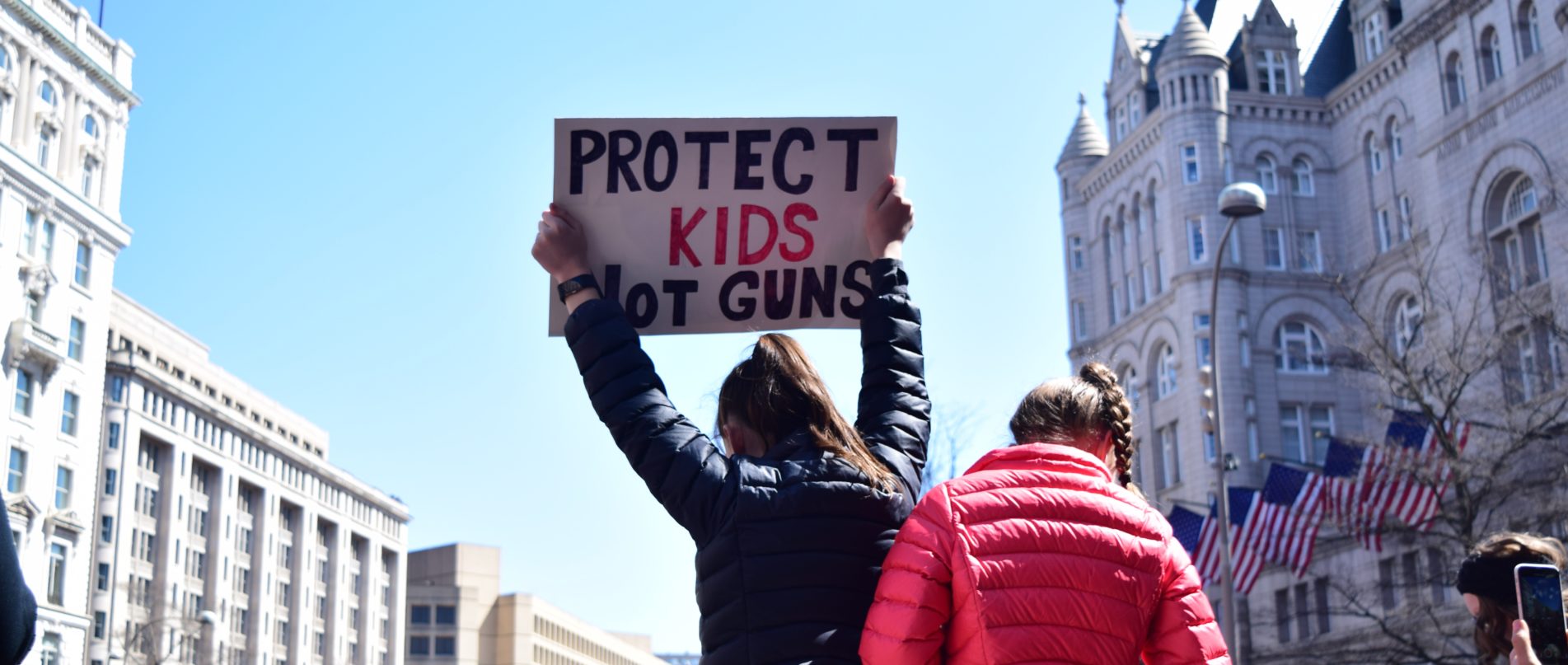
Prompt Images
Unless you’ve been hiding under a desk for the last few months, you understand that school safety has become a front-page focus. Since the deplorable school shooting at Marjory Stoneman Douglas High School in Parkland, Florida on February 14th, politicians, students, and everyone in between have debated the best way to prevent a similar tragedy.
One loud and controversial proposal is to arm teachers and administrators, perhaps to deter future gunmen or possibly to take down an active shooter. As the national conversation evolves, many new, young voices are sharing their experiences and ideas. Yet there has been a noticeable lack of attention paid to the voices of teachers, who have been volunteered to join the front line of school defense.
I spoke to six different school employees, working in schools in five different states and Washington, D.C. about their thoughts on their potentially changing roles and environments. I deliberately spoke to educational professionals across a wide array of demographics and regions of the country. Four were men and two were women. Five work in public schools. Three work in cities. One works at a university, one in a high school, three in middle schools, and one in an elementary school. I spoke to a science teacher, a math teacher, an English teacher, a college professor, a college counselor, and a vice-principal. Together, they have been in classrooms for more than 40 years.
Not surprisingly, all of the teachers to whom I spoke wished their schools were safer. However, none of them told me that safety was their biggest professional concern. Although, half remarked that safety was a bigger deal to their school than for them, personally.
Most seem to share a distrust for the systems and response protocol that are in place at their schools.
One public middle school teacher suggested that even though they go through ALICE training (Alert, Lockdown, Inform, Counter, Evacuate), “Those plans are missing a piece.” Another public middle school teacher said, “There’s a prescription from schools and police… I have amended [that] in my classroom.”
One similarity across the board was that none of the educators I spoke to wanted to have personal access to a gun in their school.
Some specifically worried about a gun in their co-workers’ hands, more than in their own. “I would not want anyone in my school to have a weapon. That would make me feel way less safe,” said one public school teacher.
Another said, “It would cause me to quit more if other, crazy teachers had guns, more than if I had to have one.”
And a third teacher, “I don’t know the exact stat, but police don’t even hit their target that often.” (Referring to a commonly quoted statistic that from 1998 to 2006, an internal NYPD study showed that officers in gunfights only hit the target 18% of the time)
And though all six teachers did not want the responsibility of being armed, there was great variance in whether such a mandate would be reason to quit.
One teacher cut off my question to denounce, “I would absolutely reject the notion. Resist and reject. I would step away from my job.” Another public school teacher, less passionately, “I don’t know if I would quit right away, but as soon as… teachers had guns, I’d be gone. I’d be finding a new school district.”
But two teachers could not say they would leave their jobs. “I would have to think very hard about my job and its importance.” And, “I would not quit if that was mandated… but I think it is completely ridiculous.”
If you are outside the figurative and literal line of fire, it’s easy to say you would run into a school and stop an active shooting, but teachers and school staff are the ones who will actually have to make those decisions. As teachers brought up their individual plans in case of emergency, I had to know whether they were prepared to make the ultimate sacrifice for their students.
Their words:
“The short answer is no. I’m not a hero and didn’t sign up to be one.”
“Sometimes I think, ‘Is my life worth it for a kid who doesn’t care, at the end of the day?’ I would do my best to protect all my kids… but if it came to saving my life over a kid, I would probably protect my own life.”
“Can’t imagine my gut reaction not being to step in the line of fire and do all I could to save lives, even if it came at the expense of my own, if it came to it.”
“I have not only thought about it, but have answered a number of times in my own psyche. Absolutely yes.”
“I guess that I am. Yeah, I mean, I guess I am.”
“I feel like I am the leader, and I have to take control. It’s my responsibility. My immediate reaction is not to say absolutely not.”
It is important to remember that each school, each community, each student body has different safety concerns, and that teachers’ needs vacillate accordingly. The private school counselor I spoke to felt safe, as the school security is “already amped up.” Meanwhile, 3,000 miles away, a suburban public middle school teacher wishes her school had “more consistent security,” and an inner city middle school teacher said his concerns are less over shootings and more with violent fights between students, “School shootings are problems in white schools.”
While the six interviewees varied tremendously in their backgrounds and views, they all understand what safety looks like in their school. My biggest takeaway is not the push for or against guns in the hands of teachers (mostly against), nor the disagreement about whether stopping school shooting is even a realistic goal (mostly not realistic). Though it may seem obvious if you can zoom out far enough from the issues, it is clear that any sweeping mandates or decisions are inevitably going to leave many without their needs met.



